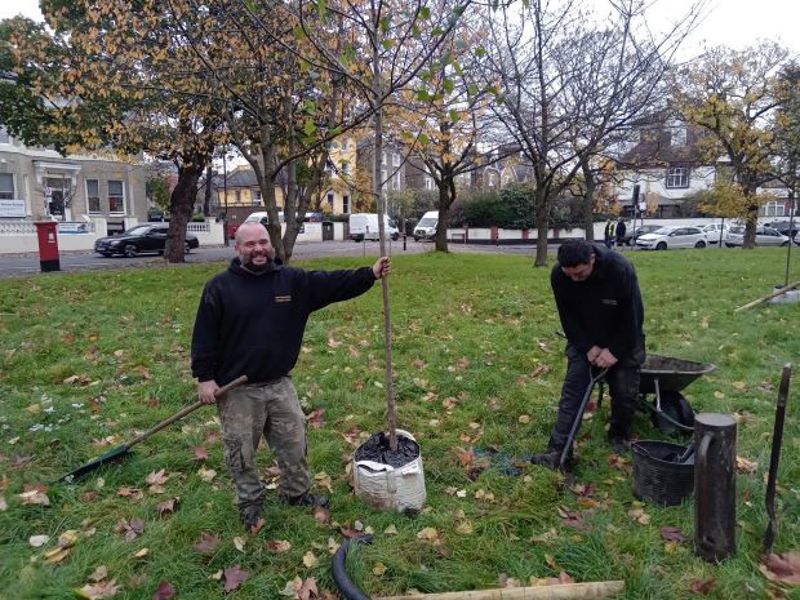Tree planting season now underway with King George’s Park scheme giving rare and threatened species a new lease of life
Published: Friday, December 2, 2022
The council’s annual tree planting exercise is now underway with some 700 trees set to be planted this winter.
Share this

Hundreds of new street trees will be planted to support biodiversity and to bring life and colour to residential neighbourhoods. Others will be planted in parks and on housing estates.
And this winter Wandsworth will see a unique conservation project completed in King George’s Park – where a rare and threatened species is being given a new lease of life.
The council’s leisure and culture contractor Enable is to plant between 20 and 30 rare Black Poplars along the banks of the River Wandle as it winds its way through the park.
The Black Poplar is the nation’s rarest native tree with only around 7,000 individual trees still alive in Britain today. These native poplars have been cloned from a group established along the Thames riverside in Barnes – one of the few natural populations left in the UK.
Wandsworth’s cabinet member for environment Judi Gasser said: “We will be planting around 700 new trees this winter as part of our annual programme. These will be welcome additions to many residential streets and housing estates and will support our efforts to deliver cleaner air in Wandsworth.
“I’m particularly pleased that our Black Poplar project in King Georges Park will help conserve and safeguard an historic but fast vanishing species of tree, helping to give these rare and threatened trees a firm foothold in our borough.”
Other species to be planted this winter include London plane, cherry, lime, pear, crab apple, rowan, oak, hazel, whitebeam, maple, hornbeam and birch.
The council and Enable look after around 62,000 trees in parks, commons and open spaces with around 15,000 planted in streets and on housing estates.
The Wandsworth Tree Policy emphasises the importance of putting the right trees in the right place to ensure their long-term survival and to preserve the borough’s biodiversity.